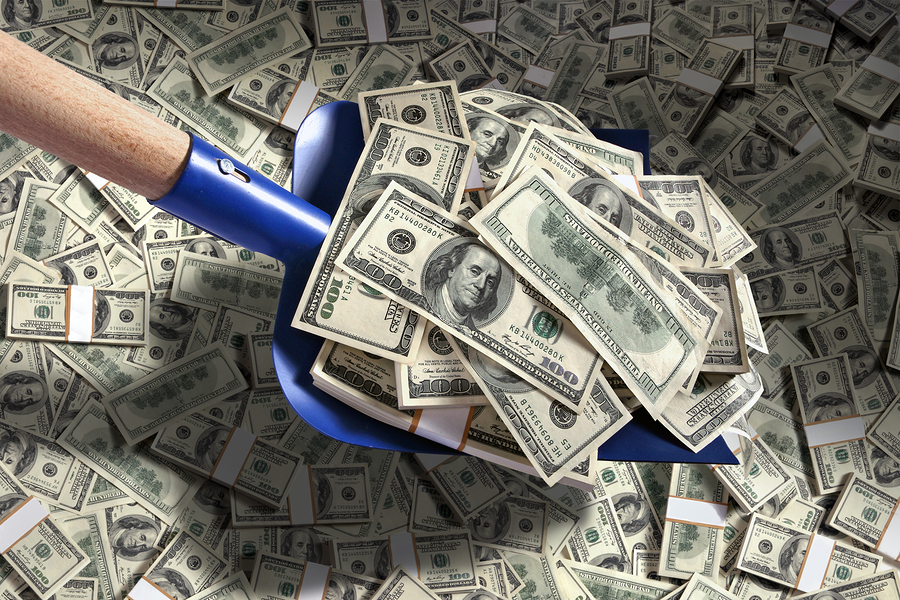Home Buyer Fees and Expenses
We often get many questions from first time home buyers about what kind of expenses they can expect when they purchase their first home. Of course, every situation is different and the numbers are dependent on the services and providers chosen, but here’s a good budgetary summary of what you can expect.
Upfront Costs:
- Earnest Money: This is sometimes called good faith money. It can be any amount you write in the offer, but is often in the range of 1% of the purchase price. Earnest money is typically paid within a few days of an offer being accepted. The intent is that if a buyer walked away from the contract for reasons other than contingencies, the seller would keep the money. If you walk away due to a contingency, you should get the money back. Earnest money comes off the bottom line at closing and can basically be treated like part of your down payment.
- Home Inspection: Home inspections range around $300-$400 in the Madison area. The cost for a home inspection is typically paid at the time of the inspection. If the home has issues found at the time of inspection and then decide to walk away from the home, no you don’t get your money you paid for the inspection back. You’ll be paying this fee again on the next home you offer. So you’ll want to be fairly confident about the home when you offer on it.
- Testing: The most common type of testing is Radon and well water. Often we can get a seller to pay for a well water test, but buyers usually pay for a Radon test, and Radon tests generally cost around $150.
- Loan Application Fee: Most lenders charge an application fee. It’s usually in the ballpark of $400. This is to cover the lenders cost of ordering the appraisal. That way if for some reason your loan isn’t completed, the lender isn’t out the cost they paid the appraiser.
- Down Payment: What you choose to put down on a property is entirely up to you and the loan program you choose. A conventional loan without Private Mortgage Insurance (PMI) will most likely be the lowest in terms of fees and the best interest rate, but require a 20% down payment. If you can afford it, this is the best route to go – in my opinion. You can get conventional financing with a much lower down payment these days, you’ll just have PMI to pay. There are still some 0% down loan programs, such as USDA, but these are usually higher in fees and rates.
- Lender Fees: Fees associated with your loan can range from $800 – $5,000 depending on your loan program. These is a combination of lender origination fees, appraisal costs, credit report costs, funding fees, etc. If you go the conventional financing route, you should be on the lower end of this. If you do USDA, FHA, or VA financing, expect higher expenses. The loan application fee that you paid prior to closing, is deducted from these costs.
- Loan Interest: As part of your closing settlement, you will pay interest on your loan for the timeframe between your closing date and your first payment. If this about 40 days, the interest you pay will probably be close to what your mortgage payment will be.
- Tax Reserves: If you choose to escrow for taxes and insurance, your lender will require that you set aside 2-3 months’ worth of taxes in your escrow fund in addition to the prorated taxes the seller will credit you.
- Title Services: The title company will charge you for their services and the lender will require a lenders title insurance policy (paid by buyer) in addition to the owner’s title insurance police (typically paid by the seller). The title company fees and title lenders insurance usually cost in around $600.
- Government Recording Fees: To record the deed as well as the mortgage with the government, there is a $60 recording fee.
As you can see, all these expenses add up quickly. This is why many buyers choose to ask for a credit for closing costs and prepaids. In the current seller’s market it’s sometimes difficult to get a closing cost credit, especially when you may be competing against other offers. The stronger your financial situation when you buy, the better. The lowest total buyer expenses (not including down payment or earnest money) I’ve seen were $135 on a low priced cash sale- without an inspection or tax escrow. The highest expenses seen were $10,167 on a mid-range VA loan with inspections and no money down. You can see, these expenses vary widely. Our numbers are just average examples, so do your homework and plan accordingly.


 Back Home
Back Home












